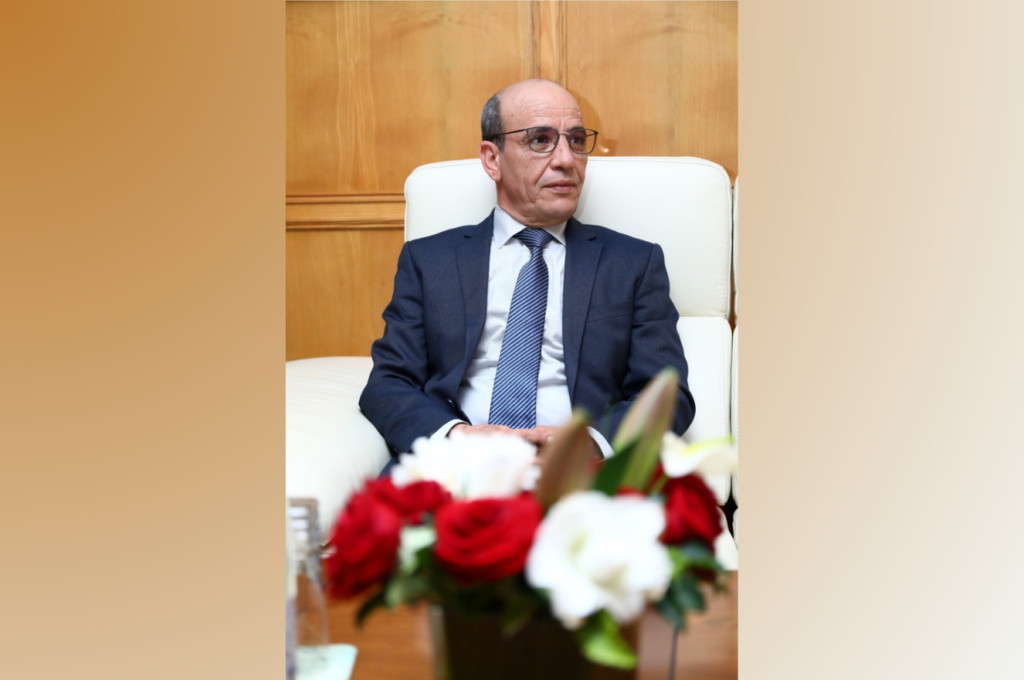
By: Dr Brahim BEN BIH, General Prosecutor at the Court of Audit of the Kingdom of Morocco

Fraud in public management can be defined as the abusive use of power by a person vested with public authority or mandate, to serve their own or private interests.
Given the risks associated with fraud, the Kingdom of Morocco has spared no effort in promoting an exhaustive and integrated vision to tackle this global challenge that affects economic and social development. Morocco’s particular attention to the fight against fraud is reflected in the 2011 Constitution, which has elevated good governance bodies to constitutional status, and enshrined the principles of good governance(1), transparency, accountability and the moralization of public life(2). The protection of these principles has been entrusted to the Court of Audit(3).
I- The powers devolved to the Court of Audit in the fight against fraud
Before examining the contribution of the Court of Audit to the fight against fraud, it is worth recalling that this institution is characterized by a duality of mandates. On the one hand, there are jurisdictional powers, consisting of two responsibilities: judging the accounts and exercising budgetary and financial discipline. On the other, there are non-jurisdictional powers, which focus, among other things, on assessing the quality of management, evaluating results and monitoring (performance audit). This duality leads to an integrated vision of control, consisting in building bridges between these responsibilities(4), thus enabling the public finance judge to ensure broad protection of public funds.
This being the case, the contribution of the Court of Audit to the fight against fraud has many facets, ranging from prevention to detection and denunciation. Firstly, it is manifested through the obligation of public managers to render accounts. They are required, on pain of financial penalties, to justify all the actions they take in the performance of their duties, as well as the results of these actions.
Similarly, the fight against fraud requires the guarantee of financial regularity by the Court of Audit. Fraud inevitably implies a violation of legislation or regulations and instructions specific to an organization.
The Court of Audit also uses the de facto management procedure to apprehend certain fraudulent acts, such as the issue of fictitious mandates, the misappropriation of funds and the production of inaccurate supporting documents.
Taking into account the constituent elements of public finance offences, we can conclude that when they are of a serious nature (aggravating circumstances in the case of budgetary and financial discipline, or management in bad faith), they are similar to common financial crimes such as the loss and misappropriation of funds, falsification and illegal taking of interest.
Furthermore, the Court of Audit intends, through its non-jurisdictional controls, to contribute to improving the quality of management of public bodies and to promoting good governance. These types of controls constitute an additional guarantee of security against all forms of fraud. When exercising these powers, the Court of Audit may detect risks likely to initiate fraudulent acts, such as weaknesses in internal control and in accounting and financial management systems, as well as breaches of regulations and/or professional obligations.
In the same vein, the system of assets’ declaration by public officials, instituted by Article 147 of the 2011 Constitution, provides another opportunity for the Court of Audit to scrutinize the wealth’s development of public officials and to contribute to the fight against fraud. Perceived as an element of transparency and information, this system is an effective tool for the Court of Audit in preventing and detecting fraud.
The same applies to the publication of the work of the Court of Audit. This constitutional prerogative(5) contributes in preventing fraudulent practices by raising awareness among public managers, avoiding the recurrence of offences and setting an example through their observations and sanctions. Through the publication of its work, the Court of Audit also contribute to fostering a culture of good management and consolidating the principles and values of good governance.
II – Detecting and reporting fraud: the role of the Public Prosecutor’s Office within the Moroccan SAI
As mentioned above, the detection of fraud can be based on observations and irregularities identified in the work of the Court of Audit. It can be used to identify criteria (what should be), evidence (what is), causes (why the deviation from the criterion occurred) and effects (impacts)(6). It can also be used by deliberative bodies to identify evidence that cast doubt on the existence of fraudulent conduct. These can take many forms: organizational, accounting, analytical, transactional, personal, temporal, visual and physical, documentary, complaints, reports, reservations, etc.
In the same perspective, the King’s Public Prosecutor at the Court of Audit may, in the exercise of his functions as public prosecutor, detect misappropriations, highlight cases of falsification or acts likely to lead to fraud. Thus, in addition to his authority to prosecute in matters of budgetary and financial discipline(7), it follows from the provisions of article 111 of the Court of Audit Act, that the King’s Public Prosecutor at the Court of Audit has the power to denounce any facts discovered by the Court, following the exercise of various jurisdictional and non-jurisdictional powers, which may justify a criminal sanction. In this case, he or she refers the matter to the Public Prosecutor at the Court of Cassation, Chair of the Public Prosecutor’s Office.
However, given that proceedings before the Court do not preclude the exercise of disciplinary and criminal action(8), certain facts may constitute both financial and criminal irregularities. Faced with these hybrid situations, the Public Prosecutor at the Court of Audit, by virtue of his discretionary power and the principle of good justice, may assess these facts to decide their fate (criminal cases or public finance irregularities), taking into account criteria including: the seriousness of the facts, the existence of a moral element, the suspicion of an unjustified advantage or other offences, and the existence of prejudice.
Over the period of 2012-2023, 116 cases concerning presumptive acts of fraudulent behavior were revealed following controls carried out by the Court of Audit, representing an annual average of 10 cases. For example, the main cases referred to the criminal courts concerned the following: steering the award procedure for a public contract; non-compliance with the principle of equality and competition in access to public contracts; over-invoicing of public contracts; payment of expenses in the absence of service rendered; charging to the public body’s budget, without legal basis, the costs of affiliation and membership of a social security fund abroad; fictitious mandates (ratione materiae, ratione temporis, ratione personae); presentation of inaccurate accounts; use of the organization’s assets for personal purposes; a director’s combined remuneration from the state-owned company he manages and his remuneration under his civil servant status in the absence of service rendered, and; purchase of equipment in the absence of a real need.
In conclusion, it is important to stress that the process of spreading the values of transparency, probity and the fight against fraud requires the adoption of a collective and participative approach. The contribution of the Court of Audit of the Kingdom of Morocco in the fight against fraud, mainly through preventive and detection measures, is fully in line with this logic. The Court of Audit aims, on the one hand, at reconciling the protection of public finance regime against all forms of abuse, the preservation of public funds and their proper use and, on the other hand, the assessment of the performance of the various public bodies and the fight against mismanagement and the positive impacts of their resulting recommendations.





